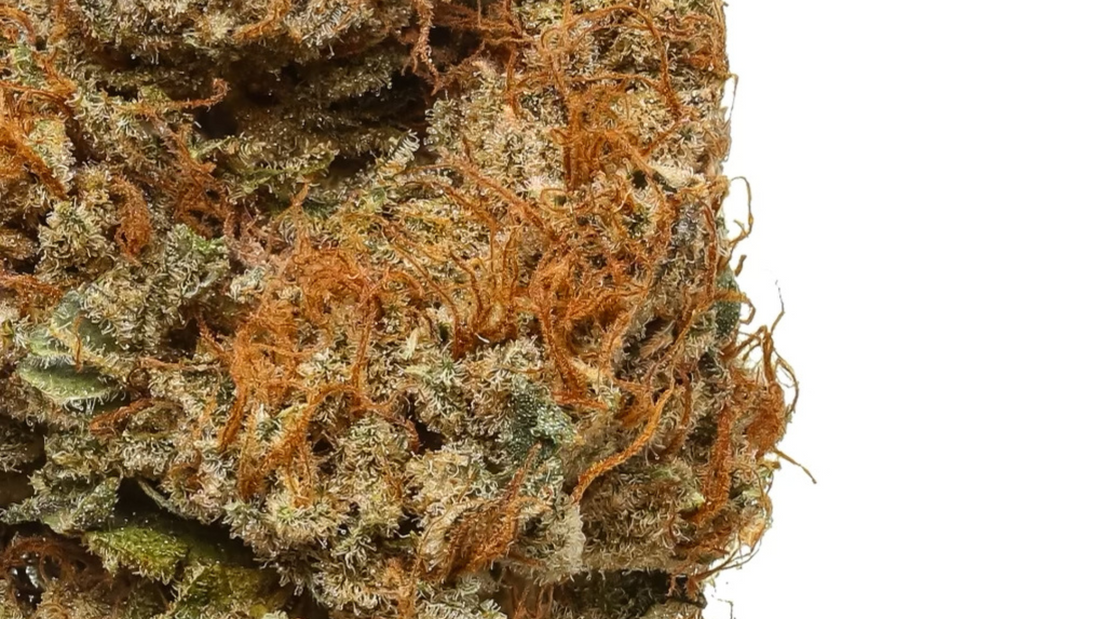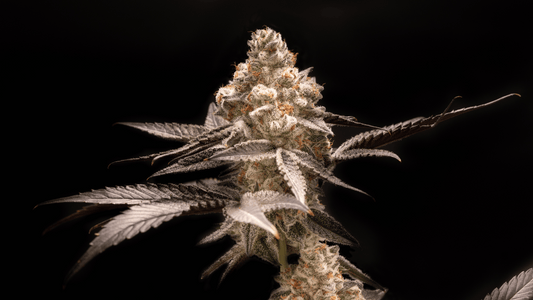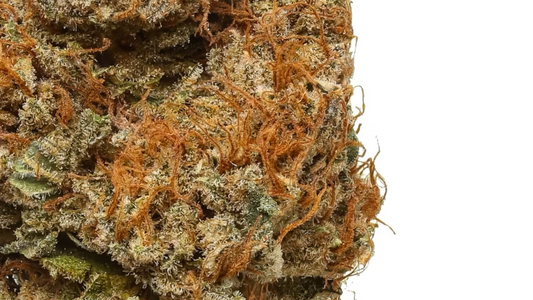THCA: Your Guide to Its Healing Powers and Health Benefits

Understanding THCA: What is it and How Does it Differ from THC?
THCA, or tetrahydrocannabinolic acid, is a cannabinoid found in raw hemp plants. Unlike THC (tetrahydrocannabinol), THCA is non-intoxicating and does not produce psychoactive effects. When hemp is heated or decarboxylated, THCA converts to THC, which is responsible for the euphoric "high" commonly associated with hemp consumption.
While THC and THCA are chemically similar, they have different properties and effects on the body. THC is the primary psychoactive compound in hemp, producing feelings of euphoria, relaxation, and altered perception. In contrast, THCA does not produce psychoactive effects, but it may offer therapeutic benefits such as anti-inflammatory, neuroprotective, and antiemetic properties.
One of the main differences between THC and THCA is their chemical structure. THC has a cyclic ring structure, whereas THCA has a carboxylic acid group attached to its molecular chain. This difference in structure affects how the compounds interact with the body's endocannabinoid system and accounts for their distinct effects.
Overall, while THC and THCA share some similarities, they have different properties and potential effects on the body. Understanding the differences between these two cannabinoids is essential for anyone interested in exploring the potential benefits of hemp.
Exploring the Medicinal Effects of THCA
THCA, or tetrahydrocannabinolic acid, has garnered attention for its potential medicinal effects and therapeutic benefits. While research is still in its early stages, preliminary studies suggest that THCA may offer a range of health benefits, including anti-inflammatory, neuroprotective, and analgesic properties.
One of the primary medicinal effects of THCA is its potential to reduce inflammation in the body. Inflammation is a common underlying factor in many chronic health conditions, including arthritis, inflammatory bowel disease, and autoimmune disorders. By reducing inflammation, THCA may help alleviate symptoms and improve overall well-being.
Additionally, THCA has been studied for its neuroprotective effects, meaning it may help protect the brain from damage and degeneration. This makes THCA a potential treatment option for neurodegenerative diseases such as Alzheimer's and Parkinson's.
Furthermore, THCA has shown promise as an analgesic, or pain-relieving, compound. Research suggests that THCA may help alleviate pain by modulating pain signaling pathways in the body and reducing inflammation at the site of injury or inflammation.
Overall, while more research is needed to fully understand the medicinal effects of THCA, early studies indicate that this cannabinoid may offer significant therapeutic potential for a variety of health conditions.
Understanding the Medicinal Benefits of THCA
THCA, or tetrahydrocannabinolic acid, is garnering attention for its potential medicinal benefits. While it doesn't produce the euphoric effects associated with THC, it offers promising therapeutic properties.
One significant area of interest is THCA's potential anti-inflammatory effects. Research suggests it may help alleviate inflammation associated with conditions like arthritis, inflammatory bowel disease, and neurodegenerative disorders.
Moreover, THCA shows promise as a neuroprotective agent, which could have implications for treating conditions like Alzheimer's and Parkinson's disease.
Another key benefit of THCA is its potential antiemetic properties, making it a potential remedy for nausea and vomiting, particularly for individuals undergoing chemotherapy or experiencing motion sickness.
As research into THCA continues, more potential benefits may emerge, further solidifying its position as a valuable therapeutic compound in the world of hemp.
Exploring the Origins of THCA
THCA, or tetrahydrocannabinolic acid, is a naturally occurring compound found in hemp plants. It's a precursor to THC, the psychoactive compound responsible for the "high" associated with marijuana.
THCA is produced in the trichomes of hemp plants, where it plays a role in protecting the plant from UV radiation and predators. As the plant matures and is exposed to heat or sunlight, THCA undergoes a process called decarboxylation, converting into THC.
The discovery of THCA dates back to early research into hemp chemistry in the 1960s. Scientists identified and isolated THCA as one of the primary cannabinoids present in hemp plants, laying the groundwork for further exploration into its properties and potential benefits.
Today, THCA continues to be a subject of scientific inquiry, with researchers investigating its therapeutic potential and exploring ways to harness its benefits for medical and therapeutic applications.
The Medicinal Potential of THCA
THCA, or tetrahydrocannabinolic acid, has garnered attention for its potential medicinal properties. While research is still in its early stages, preliminary studies suggest that THCA may offer a range of therapeutic benefits.
One area of interest is THCA's potential anti-inflammatory properties. Inflammation is a key factor in many chronic health conditions, including arthritis, inflammatory bowel disease, and neurodegenerative disorders. Some research indicates that THCA may help reduce inflammation, offering relief to individuals suffering from these conditions.
Additionally, THCA has been studied for its potential neuroprotective effects. Neurodegenerative diseases such as Alzheimer's and Parkinson's are characterized by the degeneration of nerve cells in the brain. Preliminary research suggests that THCA may help protect against this degeneration, potentially slowing the progression of these diseases.
Other areas of research include THCA's potential antiemetic properties, which could make it useful in managing nausea and vomiting associated with chemotherapy, and its potential role in pain management.
While more research is needed to fully understand the medicinal potential of THCA, early studies are promising. As scientists continue to explore the therapeutic properties of this cannabinoid, it may become an important tool in the treatment of various health conditions.
Conclusion: Exploring the Potential of THCA
As we've delved into the world of THCA, it's clear that this cannabinoid holds immense promise as a therapeutic agent. From its potential anti-inflammatory and neuroprotective properties to its role in pain management and nausea relief, THCA has captured the interest of researchers and patients alike.
While much remains to be discovered about the full extent of THCA's benefits, early studies paint a promising picture. As the hemp industry continues to evolve and regulations surrounding hemp research loosen, we can expect to see more in-depth studies on THCA and its potential applications.
At Happy Hemp Co, we're committed to staying at the forefront of hemp research and offering our customers access to the latest and most innovative products. Whether you're looking to explore the benefits of THCA for yourself or simply curious about the potential of cannabinoids, we're here to support you on your journey.
Thank you for joining us on this exploration of THCA. We hope you've gained valuable insights into this fascinating cannabinoid and its potential to improve lives. As always, we invite you to reach out with any questions or comments – we're here to help!
Frequently Asked Questions about THCA
What is THCA and how does it differ from THC?
THCA, or tetrahydrocannabinolic acid, is a cannabinoid found in raw hemp plants. Unlike THC (tetrahydrocannabinol), THCA is non-intoxicating and does not produce psychoactive effects. When hemp is heated or decarboxylated, THCA converts to THC, which is responsible for the euphoric "high" commonly associated with hemp consumption.
What are the potential benefits of THCA?
Research suggests that THCA may have anti-inflammatory, neuroprotective, and antiemetic properties. Some studies have also indicated that THCA could have therapeutic effects on conditions such as pain, inflammation, and nausea. However, more research is needed to fully understand the potential benefits of THCA.
Is THCA legal in Texas?
As of now, Texas law does not explicitly address the legality of THCA. However, since THCA is a cannabinoid found in raw hemp plants and does not produce psychoactive effects, it is generally considered legal under federal law. It's important to note that laws and regulations regarding hemp and its derivatives may vary by state, so it's always best to check local laws and consult with legal professionals for specific guidance.
How is THCA consumed?
THCA is typically consumed by ingesting raw or minimally processed hemp products such as fresh flower or juiced hemp leaves. Some individuals also use THCA-rich tinctures or concentrates. It's important to note that heating or decarboxylating THCA will convert it to THC, so consuming THCA in its raw form will not produce psychoactive effects.
What are the differences between THCA and CBD?
THCA and CBD (cannabidiol) are both cannabinoids found in hemp plants, but they have different properties and potential effects. While THCA is non-intoxicating and does not produce psychoactive effects, CBD is also non-intoxicating but may have therapeutic effects such as reducing anxiety, improving sleep, and alleviating pain and inflammation. Additionally, THCA must be decarboxylated to become active, while CBD is active in its raw form.
Where can I find high-quality THCA products in Texas?
At Happy Hemp Co, we offer a curated selection of premium THCA products, including flower, concentrates, tinctures, and edibles. Our products are locally grown and meticulously crafted to ensure the highest quality and purity. Visit our store in Cedar Park, Texas, or shop online to discover the benefits of THCA for yourself.
No comments








0 comments